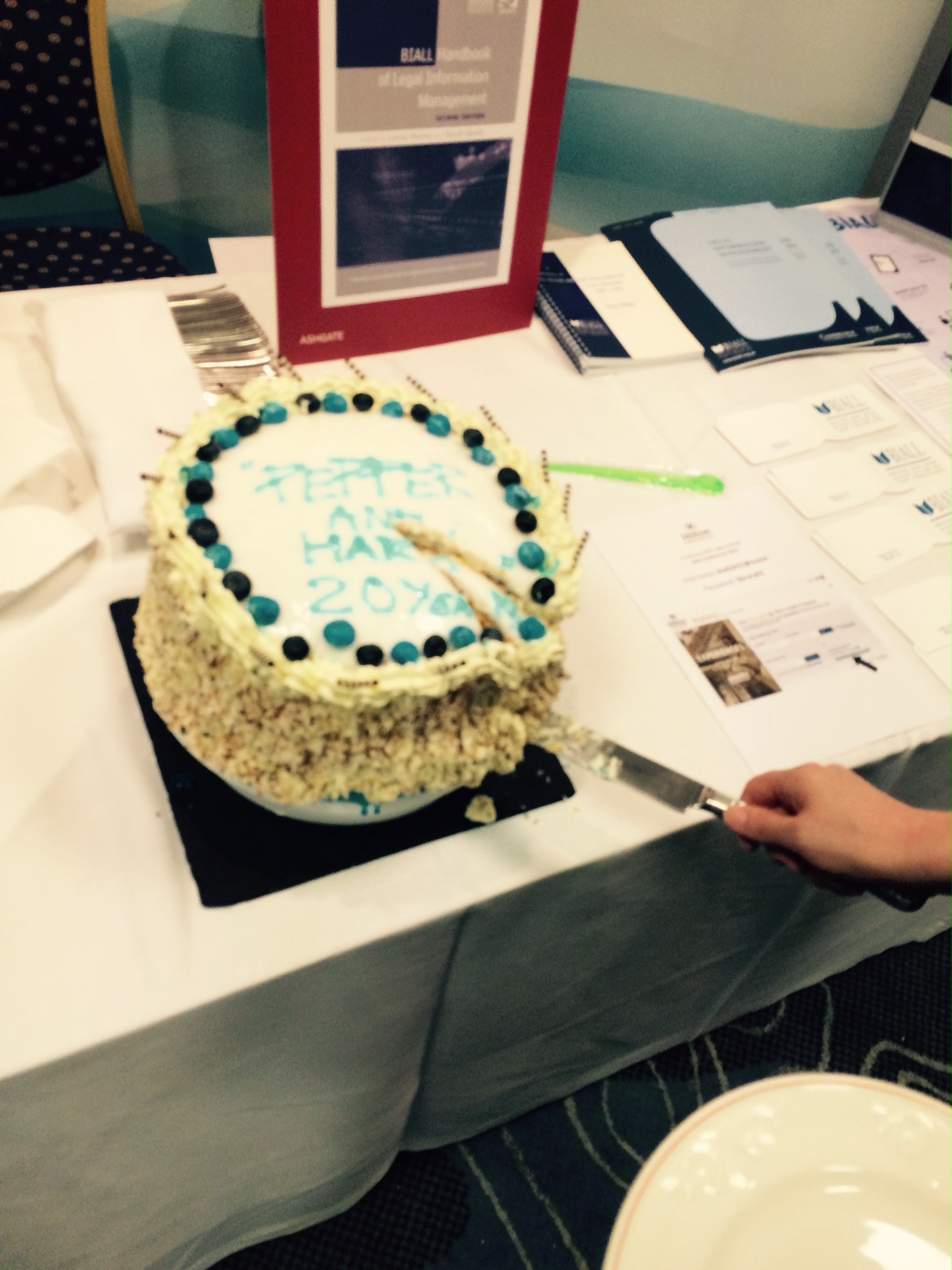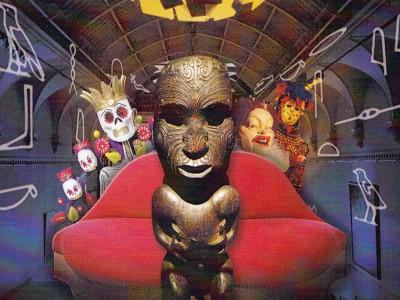ICLR at #BIALL2015
A Night at the Museum and a Day to Remember This year’s British and Irish Association of Law Librarians’ annual conference took place in Brighton, 11-13 June. The ICLR, who were platinum sponsors of the conference, hosted a delightful party at the Brighton Museum, celebrating our 150th anniversary. Delegates and exhibitors were invited for an
A Night at the Museum and a Day to Remember
This year’s British and Irish Association of Law Librarians’ annual conference took place in Brighton, 11-13 June. The ICLR, who were platinum sponsors of the conference, hosted a delightful party at the Brighton Museum, celebrating our 150th anniversary.
Delegates and exhibitors were invited for an evening of food, drink, music and a fascinating and fiendish museum quiz. To answer the questions, guests had to examine exhibits including items of furniture, pictures, ceramics, puppets, a gavel (!) and an original 1960s Lambretta scooter, to collect the information required. Some of the questions had a particular legal flavour, including the bonus question which required contestants to locate a candle snuffer modelled on the likeness of a famous barrister, Henry Hawkins, who acted for the Crown in the famous Tichborne inheritance case. The prize for the winner would be an iPad mini.
Welcoming the guests, Clive Scowen, editor, observed that although ICLR might be celebrating “150 years of Making Case History”, it was of course the judges who decided the cases. What ICLR had been doing for that last century and a half was selecting those worthy of preservation and making them accessible, at modest cost, to academic and professional readers in a systematic and reliable way. Before ICLR’s foundation in 1865, law reporting had been in some disarray and was prolific, expensive and unreliable. Its establishment had been welcomed by the professions, represented by the Law Society and the Inns of Court which had founded it. The first volumes of the Law Reports appeared in 1866, by which time there were over 400 subscribers at 5 guineas a year. [One of the delegates later asked me if we know who they were: we are going to try to find out.] The number of cases being decided combined with the constraints of print had made it increasingly difficult to keep to the original approach to selection of cases but now that it was possible to publish online ICLR, in response to the known demand from subscribers, would be expanding the amount of content published online as well as providing access to transcripts of unreported judgments.
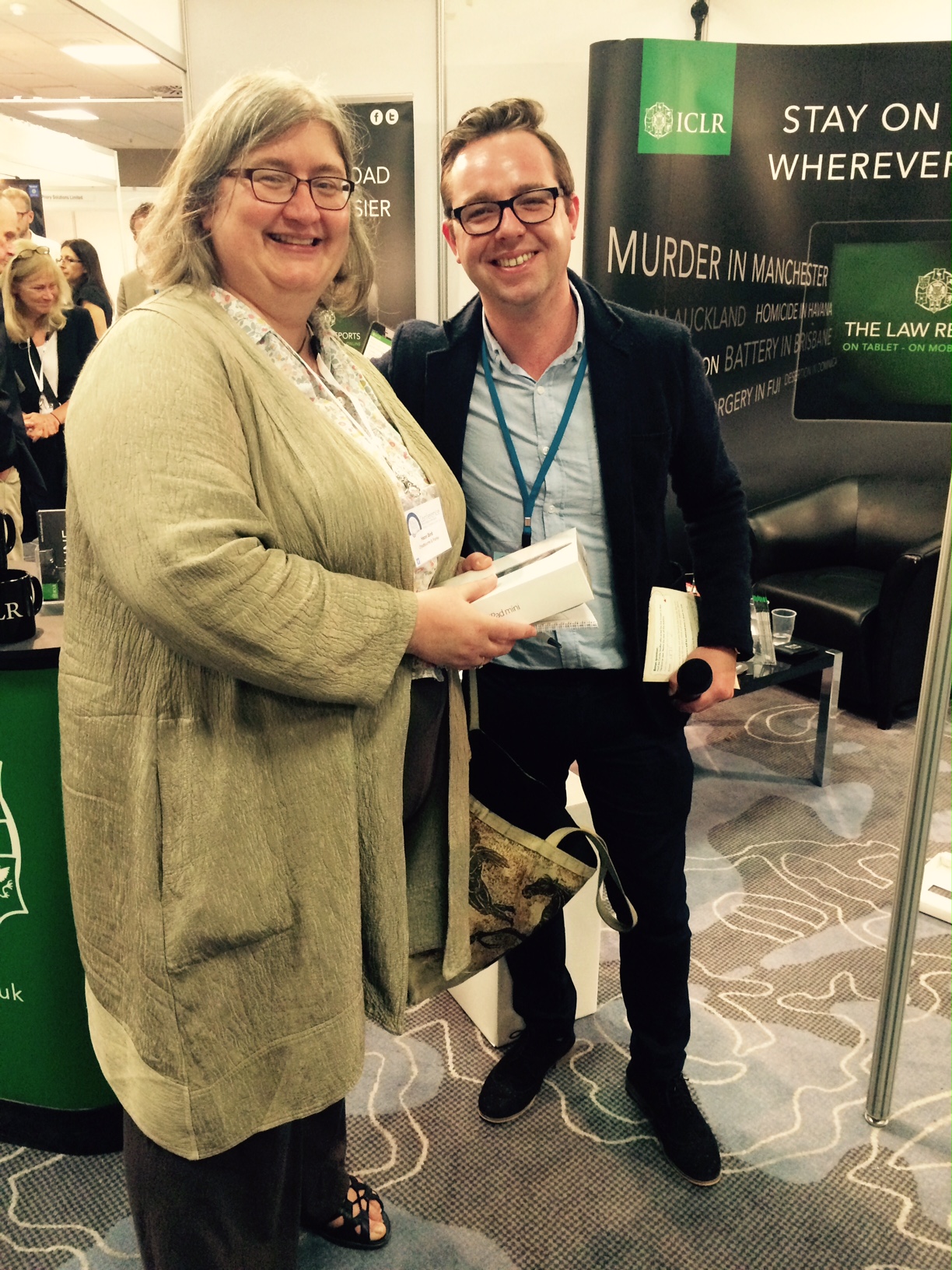
Having welcomed the guests, Clive gave up his place in the gallery overlooking the main hall of the museum to a trio of musicians, who regaled the guests with trad style jazz as they mingled among the exhibits and toured the other rooms in search of clues to complete their quiz questionnaires. The entries were all handed in as guests left and the prize awarded the following lunchtime. As you’d expect from such an observant and well informed crowd, there was a substantial number of correct entries, from which the lucky winner plucked at random was Hazel Bird, of Chadbourne & Parke LLP. Here she is, with her iPad mini from ICLR.
Stand and deliver
The conference was held in the Hilton hotel, on the seafront, though none of us had time for a swim (it would have been too cold) or even a stroll on the shingle of the beach. ICLR’s stand was right in the midst of the exhibitors’ hall, on the route between the plenary auditorium and the food buffet. So coffee breaks and lunch times offered passing delegates a good opportunity to stop and catch up with the ICLR team and learn of the new developments in the pipeline, including the chance to see a demonstration of the beta version of our latest upgrade, version 2.5 of ICLR Online.
Not case law – cake law
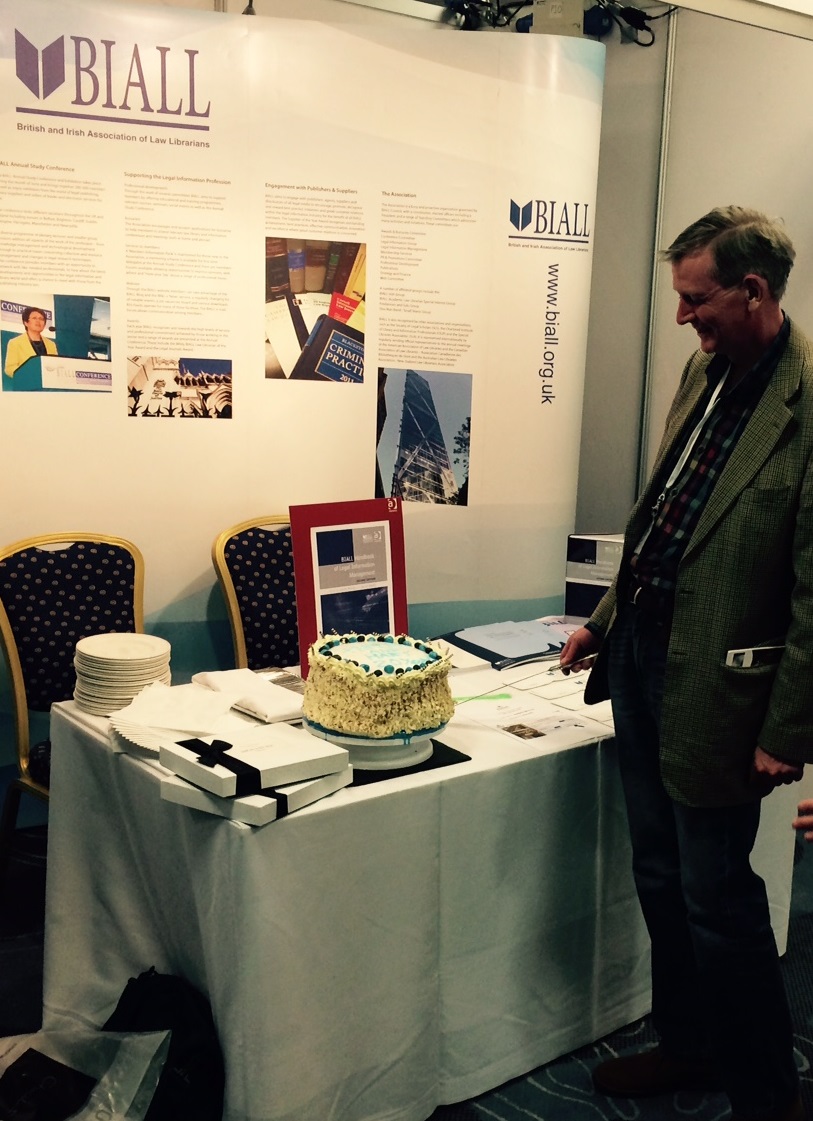
This year’s ICLR sesquicentenary was not the only anniversary being celebrated. On 12 June BIALL produced a fabulous cake to mark the 20th anniversary of the Pepper v Hart Research Course run by BIALL at Lincoln’s Inn and delivered by the Inn’s librarian, Guy Holborn (see here about to cut the cake). The cake proved a nourishing antidote for those of us with a slight hangover from the ICLR party the night before, and was a deliciously spongey and creamy reminder of the awkward business of statutory construction by reference to parliamentary materials as argued over by counsel (with whose researches Guy had helped) in the landmark case of Pepper v Hart [1993] AC 593.
The House of Lords’ decision, reported by ICLR, is one of the cases nominated for ICLR Vote, and is likely to be included in our selection of the top 15 cases, voted by readers, to be published in a special Anniversary Edition later this year.
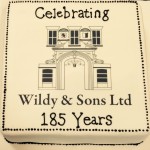 Another cake was produced by London’s top legal bookshop, Wildy’s, to mark their 185th anniversary. We often bump into the Wildy’s team at conferences such as BIALL, and when you meet them it’s not hard to see why their bookshop is so popular and successful with clients all around the world (as we have witnessed at events like the International Bar Association conferences we’ve also attended).
Another cake was produced by London’s top legal bookshop, Wildy’s, to mark their 185th anniversary. We often bump into the Wildy’s team at conferences such as BIALL, and when you meet them it’s not hard to see why their bookshop is so popular and successful with clients all around the world (as we have witnessed at events like the International Bar Association conferences we’ve also attended).
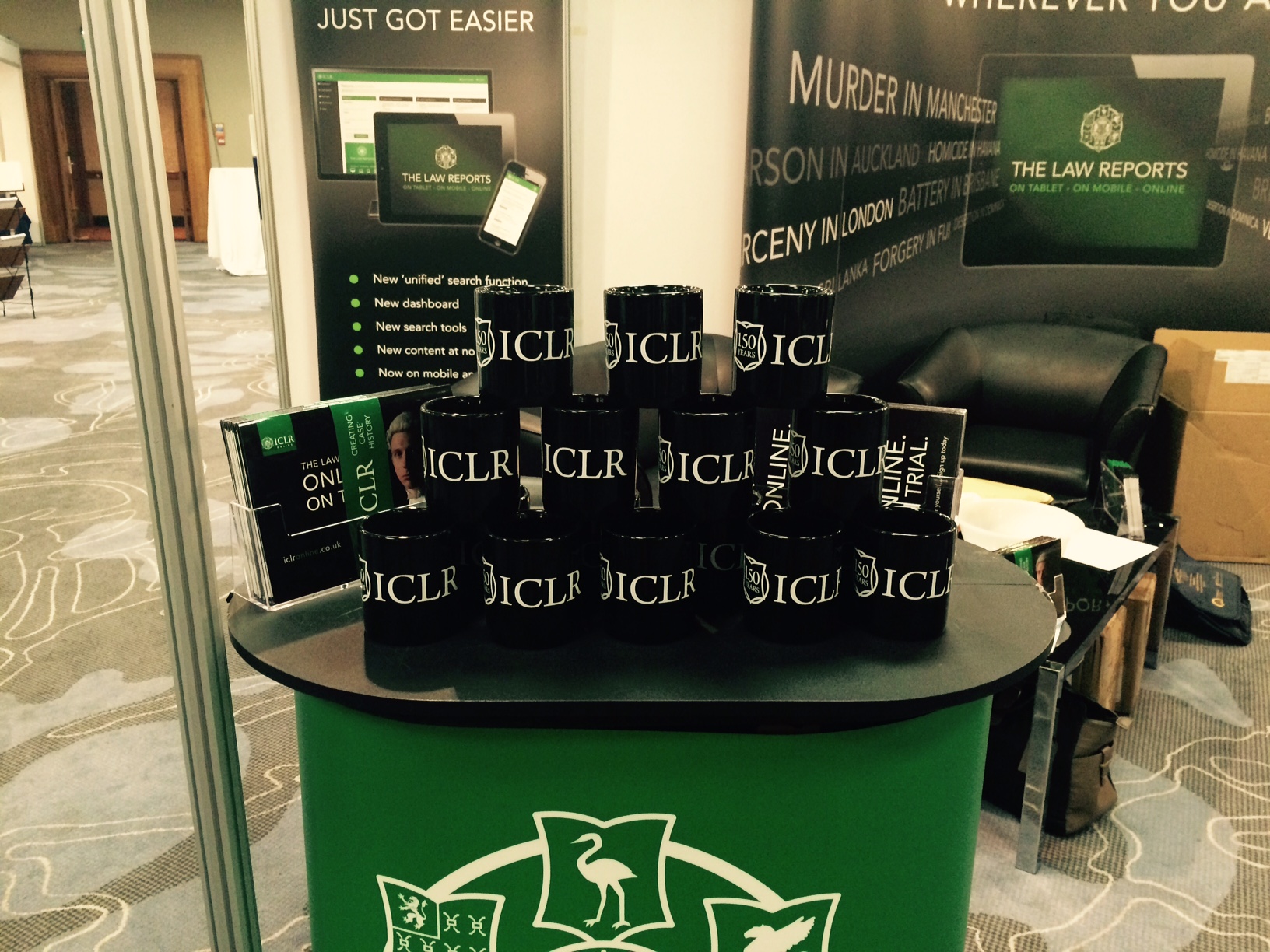 Session history
Session history
Among the cakes, quizzes and quests, some of us were even able to escape from the stand and sit in on some of the sessions. The theme of this year’s conference was “Charting the Cs: Collaboration, Co-operation, Connectivity”
Notable among the sessions was one on the subject of collaboration, entitled Infiltrate and Conquer, by Emily Allbon of City University, now a law lecturer there, but formerly law librarian, responsible for setting up the LawBore website. Among the collaborations discussed was one with ICLR, on the LawBore site, in the form of an interactive guide to a sample law report (with narrative by me).
Emily urged librarians to “connect and collaborate”, as she had done, with academics, students, “ed tech peeps”, alumni, publishers, lawyers and, of course, other law librarians. Many of her collaborations had been sparked by discussions on Twitter. I can vouch for this, having myself embarked on a collaboration, The Transparency Project, started on twitter and pursued via the blogosphere.
The virtues of Twitter as a collaborative medium were explored in another session, led by Lydia Craemer, on the subject of the “Twitchat”, which was live tweeted (including by me) using the hashtag #twittermore.
Essentially, a twitchat is a sort of online roundtable or discussion group, which can either be ad hoc or organised with a proper agenda (eg posted on google docs), held together by a common hashtag, and lasting ideally no more than about an hour. It can involve a set group in locations across the globe (with allowance for time difference when scheduling), but others can contribute if interested. During the session, as I was tweeting it, watching the twitter feed on the hashtag, I was able to see others following the session from various different countries, as well as some others in the room. (It can be interesting finding out who someone on twitter is in real life, as this is not always apparent from their handle or avatar, and sometimes turns out to be the person sitting next to you at an event.) It’s probably not ideal for a really detailed discussion, but good for swapping tips and queries, cross-pollinating ideas and perhaps starting the ball rolling on a collaboration.

